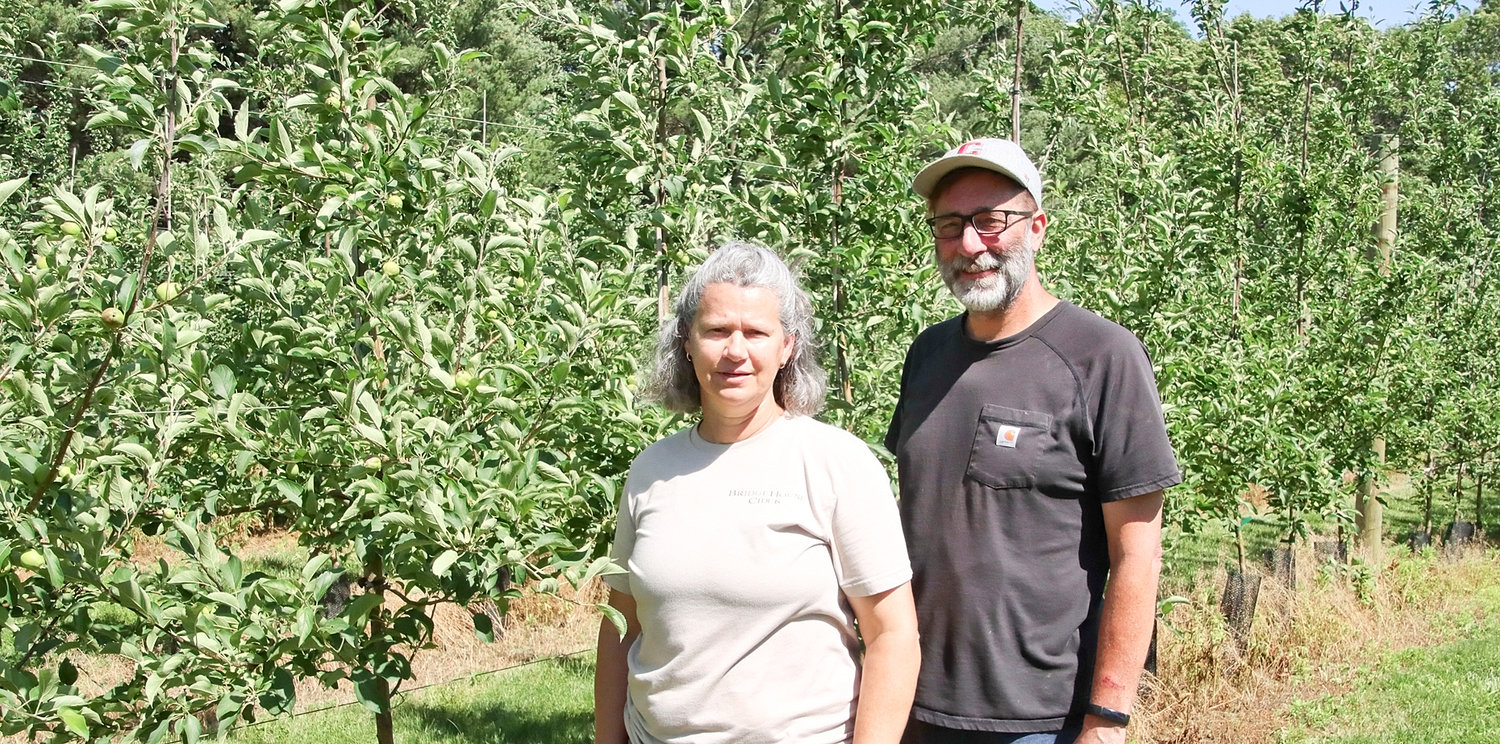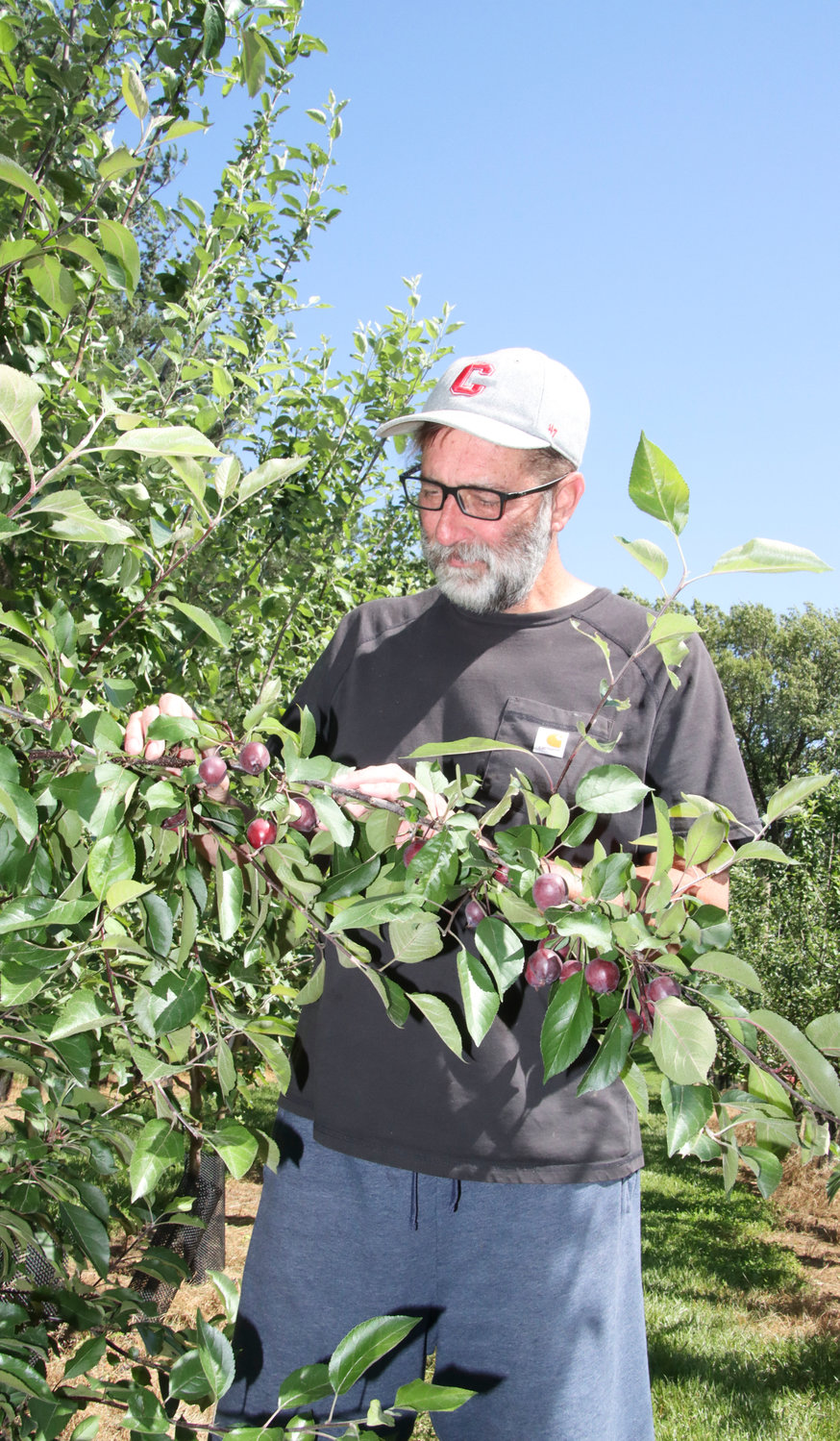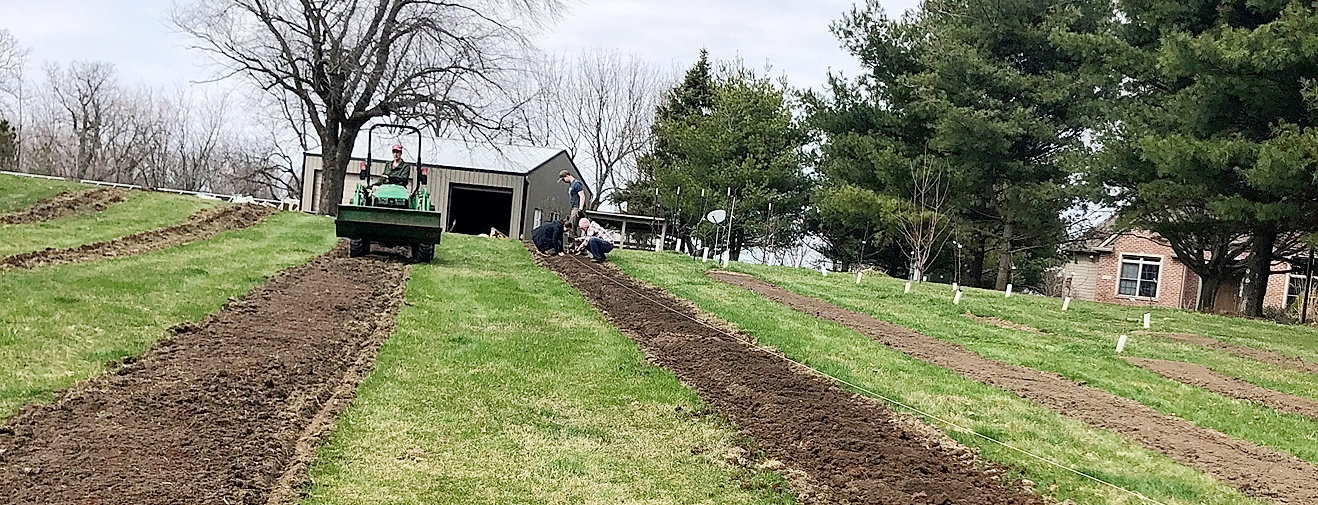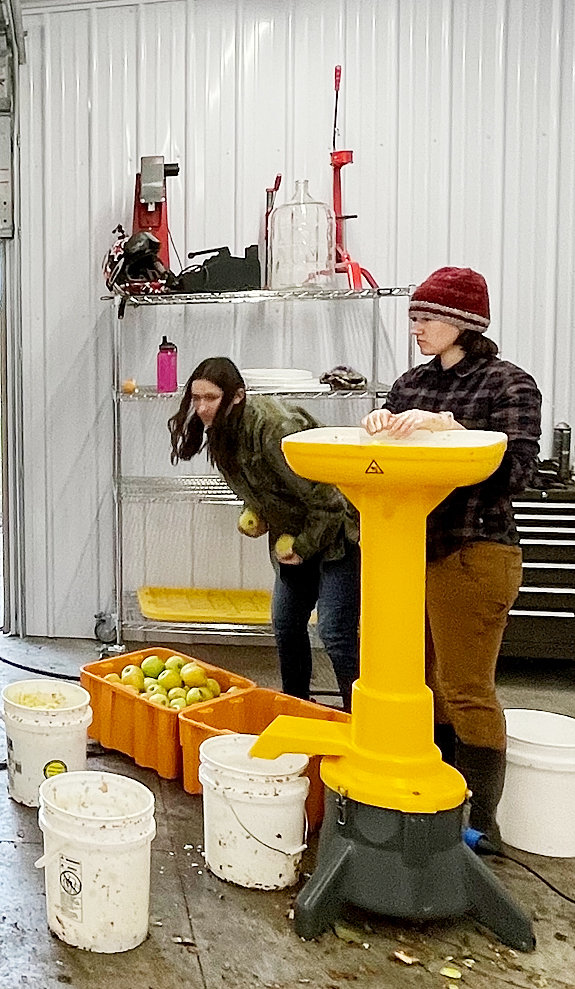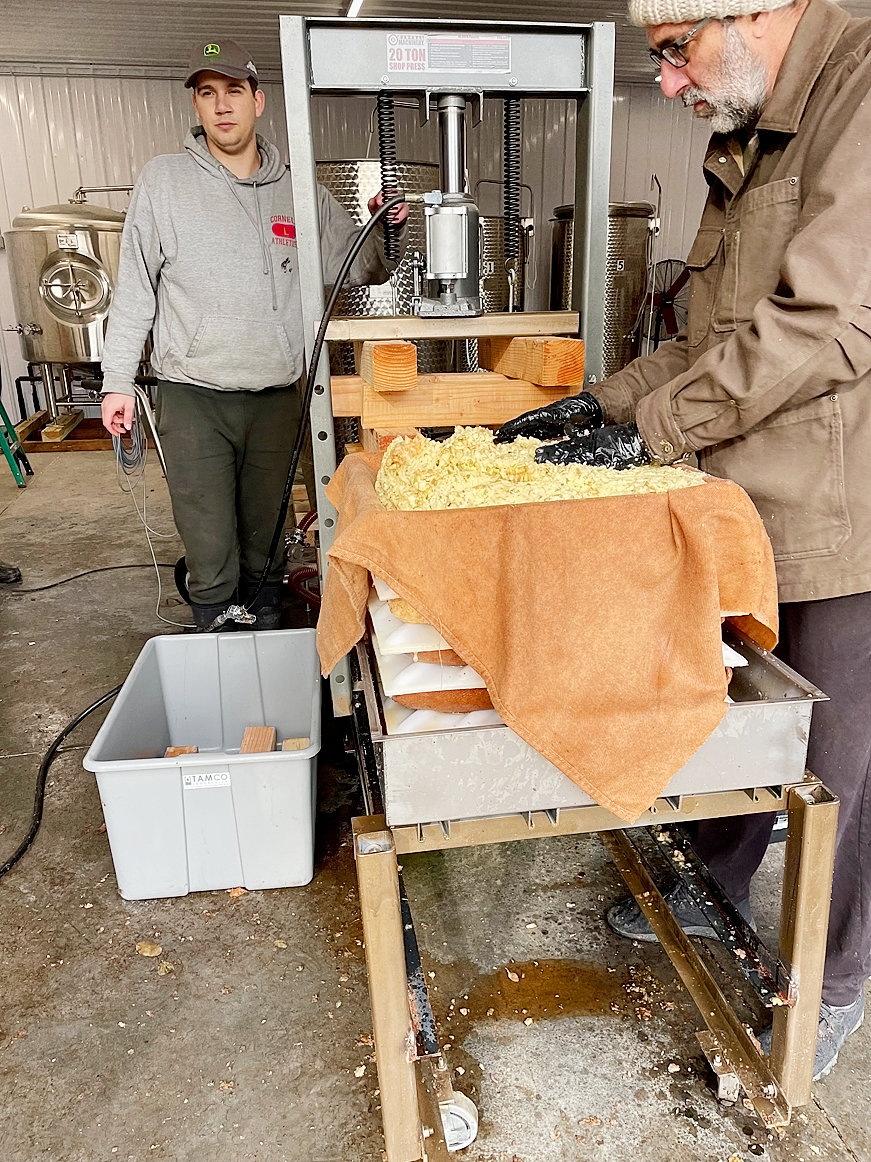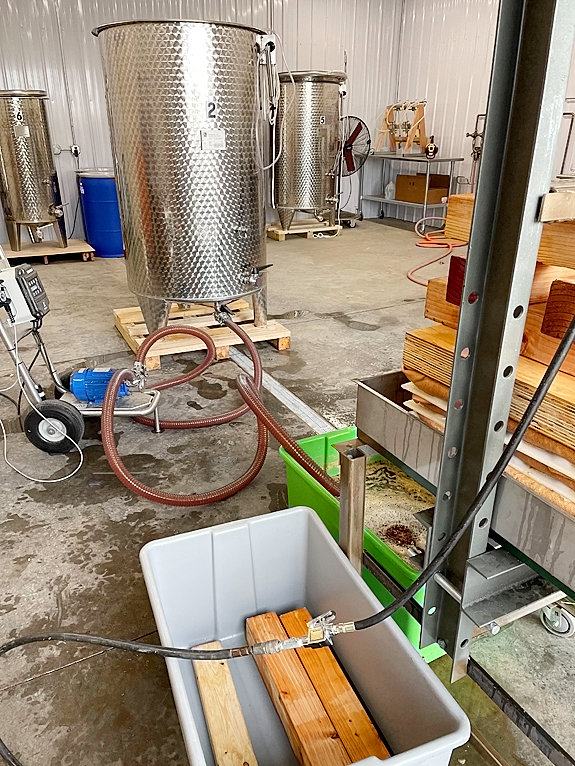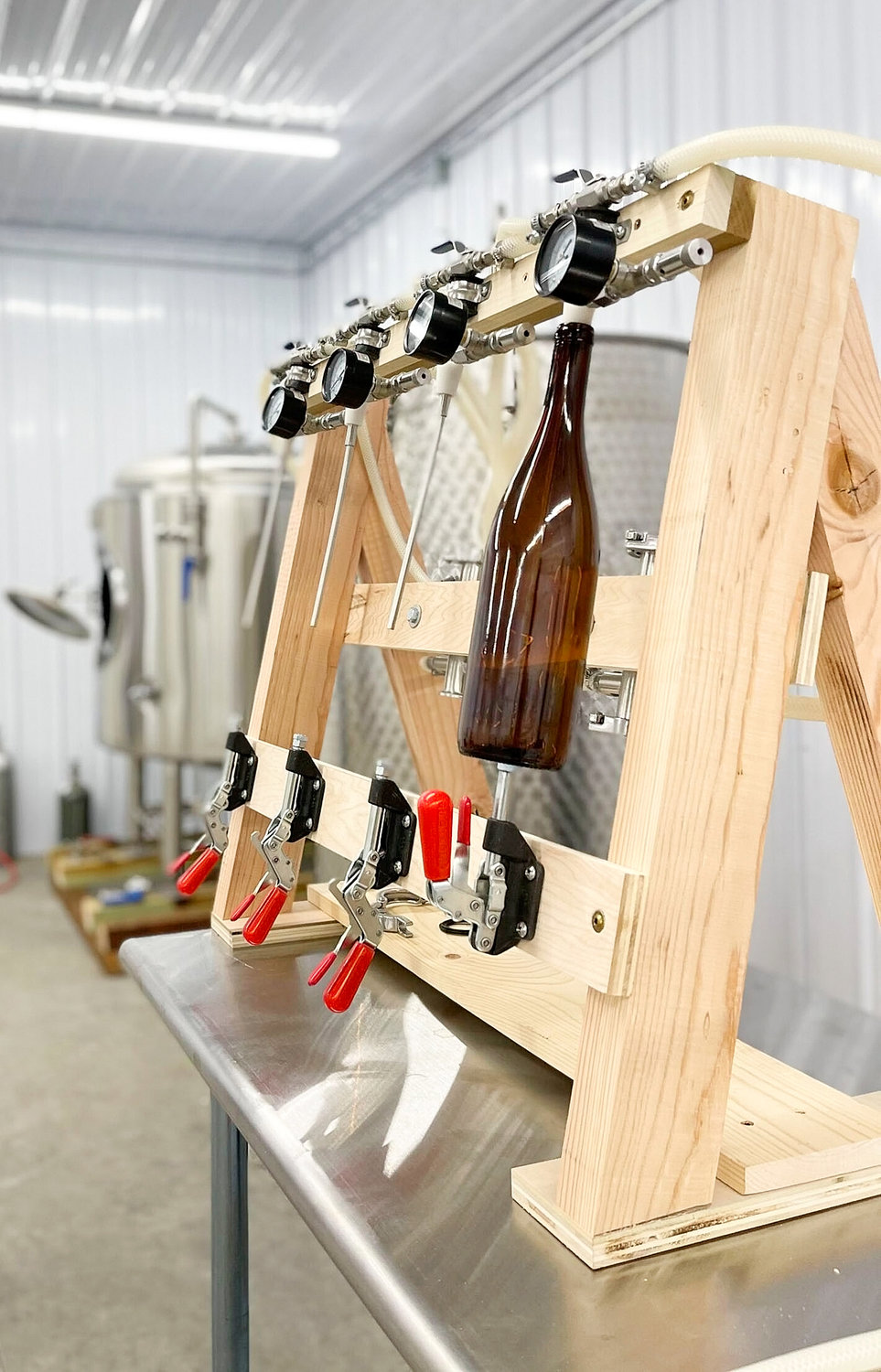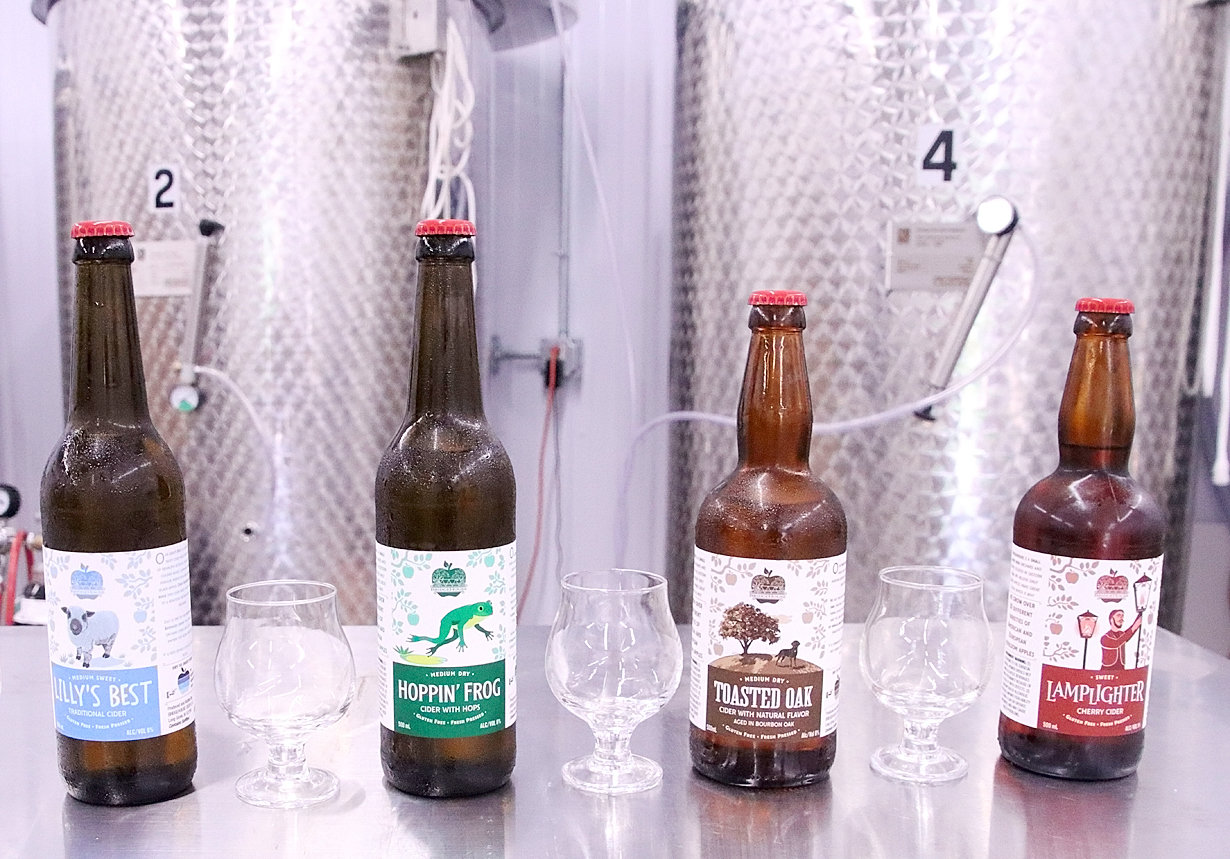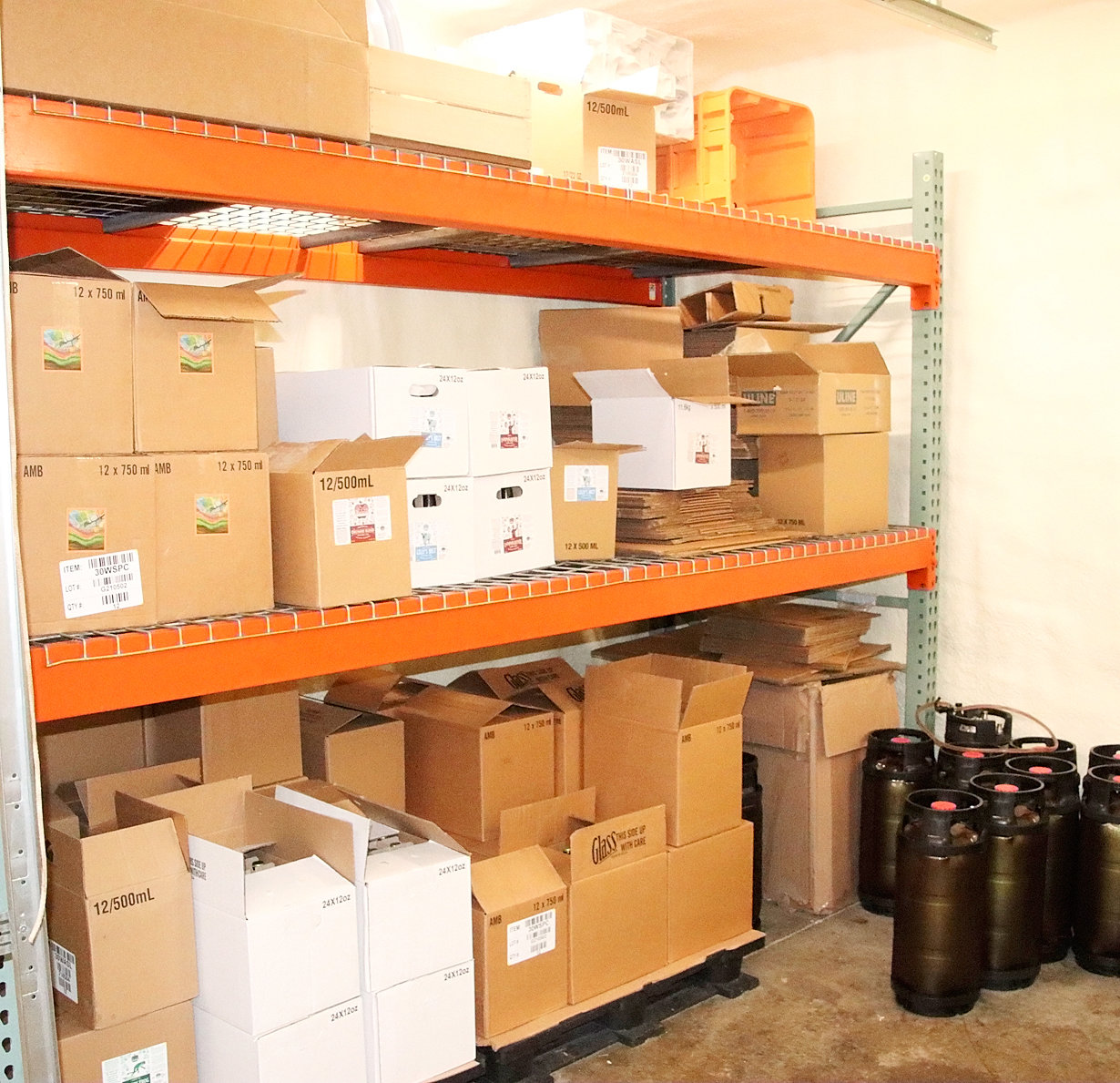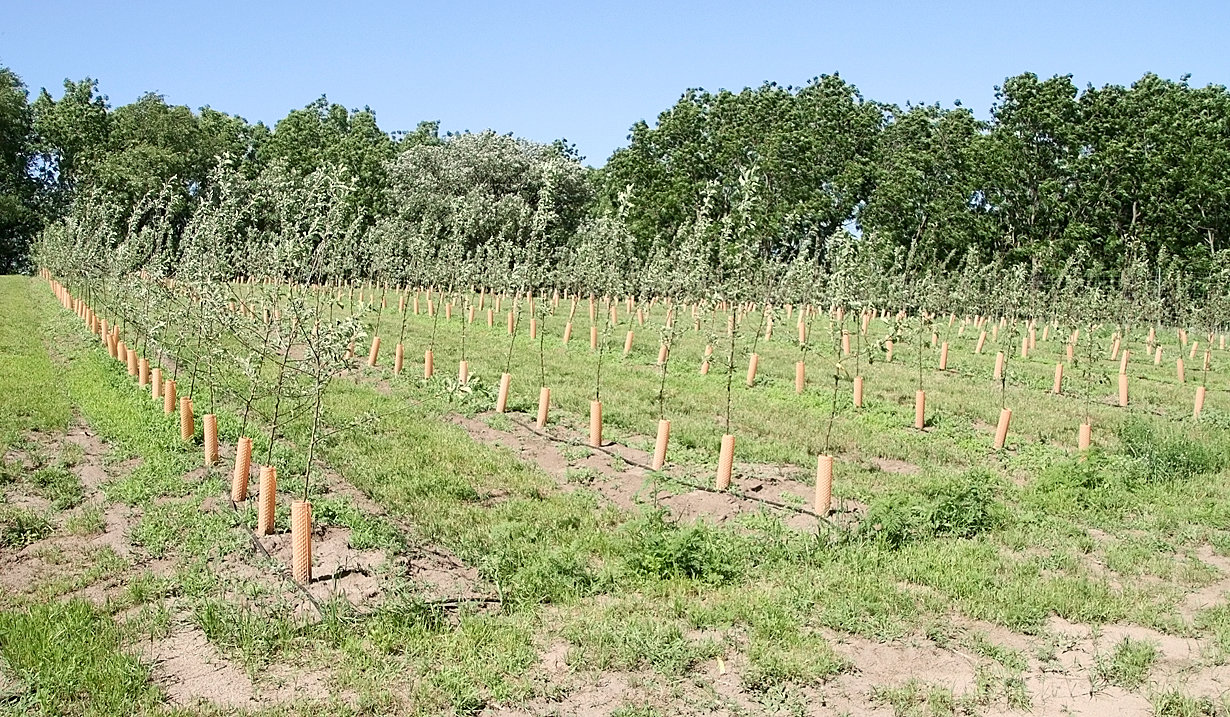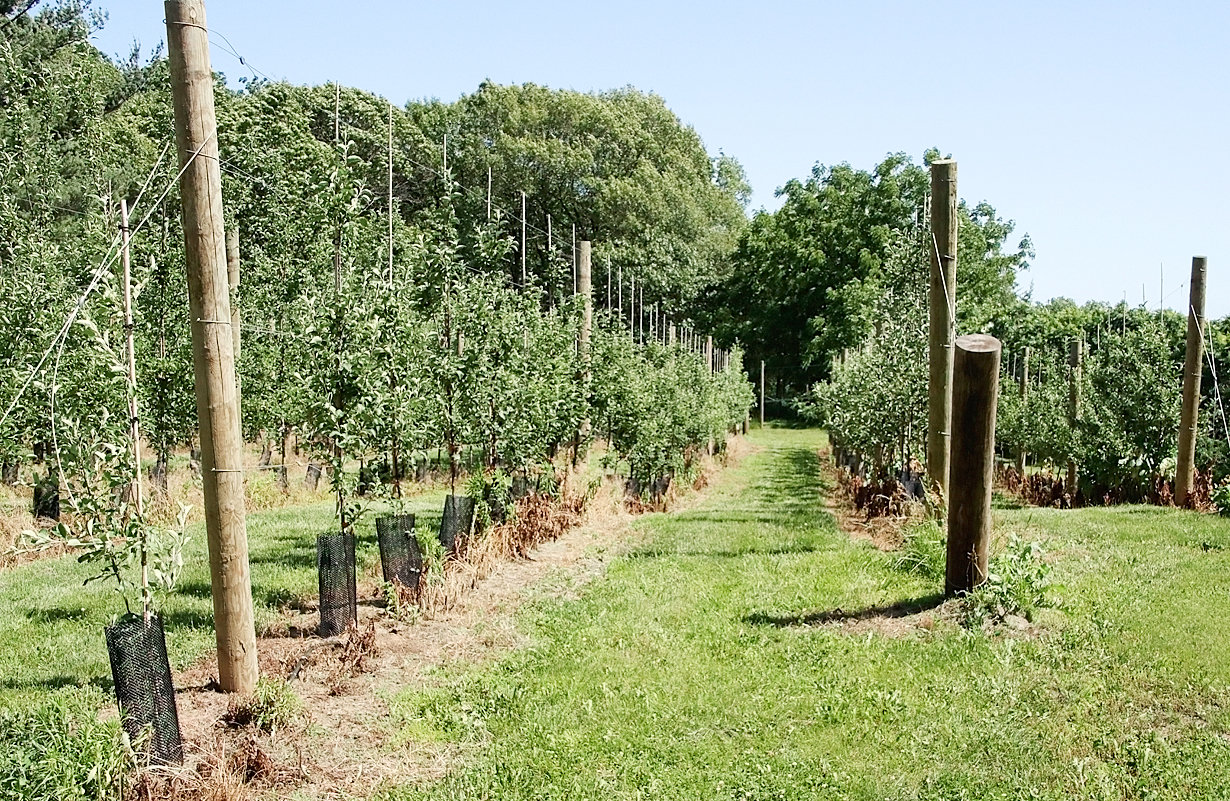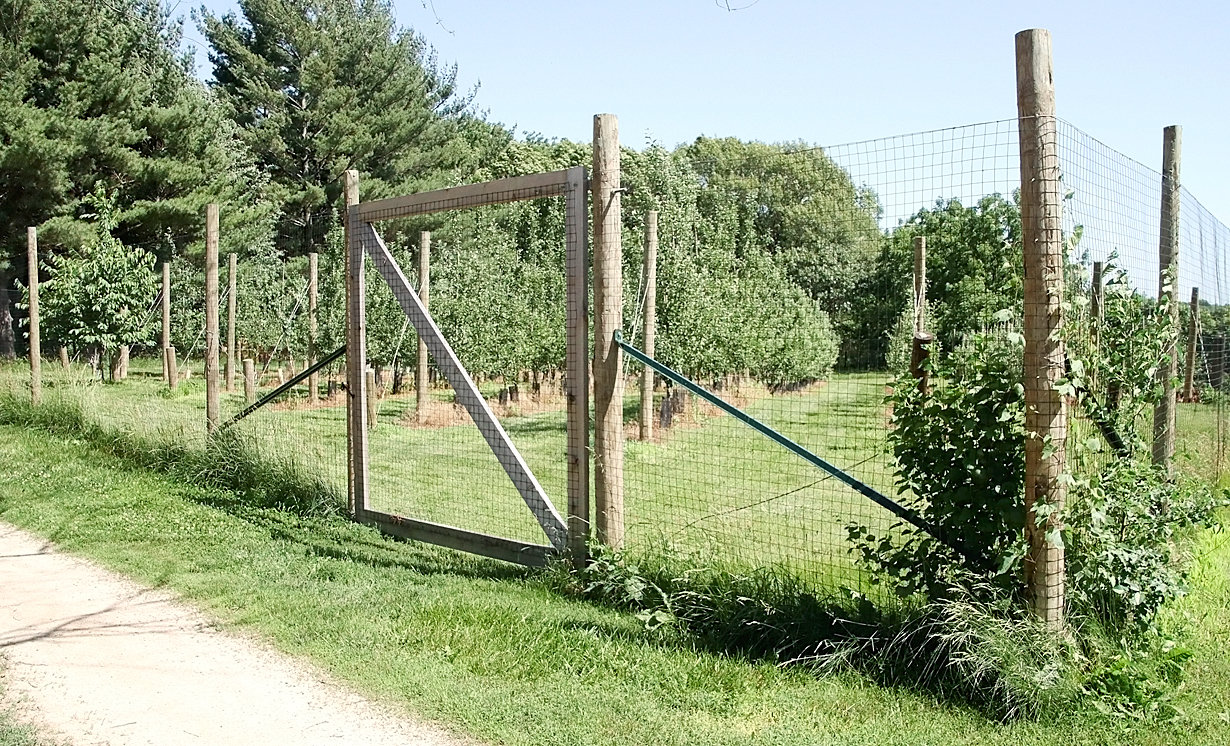Iowa's sweet secret
Bridgehouse Cidery opens in Scott County
High atop a ridge overlooking the sandy soil in the northeast corner of Scott County, sits one of Eastern Iowa’s sweetest and best-kept secrets.
Nestled amidst rolling fields of corn and soybeans, on a hilly, eight-acre parcel of land, is Bridgehouse Cider, one of just six hard cider producers in all of Iowa.
Incorporated as an LLC in 2020, the business started by John and Dianna Romanick, along with their four children, is now poised to take a sweet slice out of the growing hard cider industry with their 1,000-tree orchard.
The Romanicks moved to their rural Scott County home, located between Long Grove and McCausland, in 2011, when John was transferred for the eighth and final time as an engineer with John Deere.
When the Romanicks purchased the eight-acre plot, apples and cider weren’t even footnotes in their future plans, but that all changed when their oldest son, Alan, graduated from North Scott in 2017 and headed east to study and row for Cornell University in New York
“Cornell has a great agricultural science program, and the area is known for growing apples and making cider,” said John. “Alan worked at a cidery part-time, and he really got interested in it.
“About the same time, I began thinking about retiring, and we decided we were going to stay here. We knew we wanted to do something with the property, and having an orchard made sense. I got interested in the horticultural side, and Alan is into the hard cider.
“Hard cider is really taking off on the east and west coasts, but not so much in the Midwest. It’s a trend, and we decided to give it a shot. Fortunately, my wife was willing to go along with it.”
John planted 14 trees in 2019, and the one good thing to come out of Covid a year later is that all of the couple’s four children (three in college and one in junior high at the time) were home and learning online.
As a result, John had plenty of help when it came to planting an additional 150 trees, followed by another 100 last year. In April, John planted 650 trees on a different part of their acreage, giving him a total of nearly 1,000 trees.
Both orchards are enclosed with an eight-foot fence, to protect the trees from a growing deer population, and fully irrigated. The trees need between three and five gallons of water a week in order to survive.
It takes roughly three years for trees to fully produce fruit. The Romanicks harvested 20 bushels of apples last year, and are expecting to pick 30 bushels this fall.
“We’re supposed to get a bushel per tree, and three gallons of juice per bushel,” said John. “With 1,000 trees, that’s roughly 3,000 gallons of juice, which is a good amount. If I could sell 3,000 gallons of hard cider, that would be a nice little retirement income.”
Good apples make good cider
Of course, any good cider starts with good apples, and the Romanick orchard contains 36 varieties of trees that will produce unique juices to be blended.
“Most of our trees are ‘cider’ trees,” said John. “A lot of our trees come from England, some from France, and some from America. A lot of good varieties have been developed which are specific for good cider, which means they are high in acid and sugar. They aren’t really good for eating. They taste sour and nasty.”
The Romanicks do have a small number of trees that produce eating apples, which gives them some diversity and the option to sell at area farmers’ markets.
The secret is in the juice.
“The big producers will get juice from all over the place, so they can make cider year-round,” said John. “We are very specific about the juice, and that makes us different. Our apples and juice are very high quality, so right now, our operation is a harvest-driven thing.”
The apples are harvested in the fall, and the family begins the cider process around Thanksgiving, after the apples “sweat” a few weeks to increase the sugar level. They are ground into pumice with a grinder, and then the Romanicks use a traditional rack and cloth press to extract the highest quality juice to be used for cider.
“We wrap the pumice in cheesecloth,” said John, “and then press to get the juice. We then transfer the juice into fermentation tanks, and add yeast. It’s just like making wine. We let it set for about two weeks until it fully ferments.”
After the fermentation process, the juice is left to mature for two to four months before it’s filtered for bacteria and yeast residue, then blended, flavored, carbonated and bottled.
The Romanicks believe in minimal preservatives, and use all natural ingredients to produce gluten-free cider, with 700 gallons being bottled in April.
All the work is done in a 32x32-foot addition to an existing pole building, and it includes a cold storage room.
The hard cider industry is growing, with every cidery developing its own unique taste and brand. The Romanicks are no different.
“You’ll see a million crazy different flavors, especially in Iowa,” said John. “We do a lot of tasting trials, and it’s all by trial and error.”
“We’ve tasted some pretty bad cider at times,” laughed Dianna.
A year ago, when they produced 150 gallons, the Romanicks had just one variety. This year, they have four varieties that they are trying to market.
The most popular variety is Lily’s Best, named after one of the Babydoll sheep that grazes in the orchard, and is more of a mainstream, traditional hard cider. It is a medium sweet cider made from a blend of Bramley’s Seedling, Calville Blanc, Golden Russet, Ashmeads Kernal, Porters Perfection and Kingston Black apples.
Other varieties include:
Liquid Gold: A bone-dry, small batch cider made from a blend of Ellis Bitter, Goldrush and Porters Perfection apples, which, according to its description, imparts bold tannins with a lingering acidity to help make for a truly unique drinking experience.
Hoppin’ Frog: Made from Iowa cider apples and dry hopped with fresh citrus hops. This process imparts a bouquet of bold tropical aromas and flavors.
Toasted Oak: A medium dry blend from Jonagold, King David, Hudson Golden Gem and Roxbury Russet apples. The cider is aged with bourbon-infused oak, creating a warm and smooth drink.
Lamplighter: A sweet cherry cider made by co-fermenting apples including King David, Jonagold, Roxbury Russet and Hudson Golden Gem, together with Montmorency cherry juice.
The Romanicks have yet to secure a distributor, so Dianna is busy visiting area restaurants and bars to see if they’d be willing to carry BridgeHouse Cider, which is available by keg or bottle.
“The tricky part is trying to move our product,” said John. “People can order it online through our website, and we can ship cider all over the country. I’m also licensed to sell it right here on the farm.”
“I do enjoy going out and doing the tastings,” said Dianna. “They are fun, and I enjoy getting people’s feedback. For the most part, everybody is positive, and they always seem to find a variety they really like.”
No regrets
John enjoyed his 32 years at John Deere, but he’s loving retirement. For the most part, all the hard work is done in terms of getting the orchard to take root.
“I have no regrets whatsoever,” said John. “Getting into this has been fun, and we’re really happy. Honestly, it’s a pretty basic operation.”
Alan now works for John Deere in Kansas City, but comes home on the weekends in the fall to help his parents with the business. Twin daughters Natalie and Grace, 2019 North Scott graduates, attend college in Wisconsin, and have also been known to lend helping hands, along with son, Sean, who will be a sophomore at North Scott.
“Most of the hard work is done now,” said John. “Putting the orchard in was a lot of work, but now we’re up to speed. We have all the equipment we need, and it’s about spraying for bugs, keeping the weeds down, maintaining, and keeping the trees healthy.
“Really, all we have to do is focus on making some great cider, and pushing it out. I know we have a good product that people enjoy, and all the work is worthwhile when people taste it, and say they love it.”
For more information, visit bridgehousefarms.com.
Keywords
Bridgehouse Cider, John Romanick, Dianna Romanick, Alan Romanick, Natalie Romanick, Grace Romanick, Sean RomanickComments

